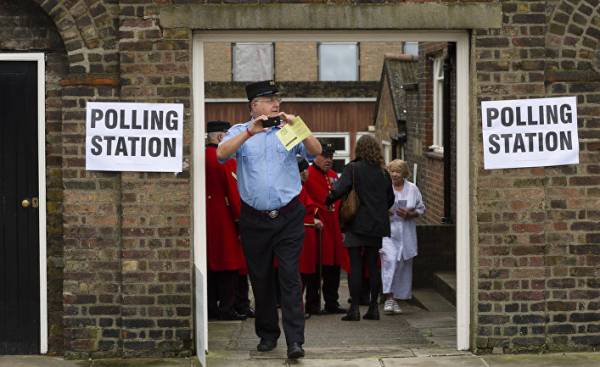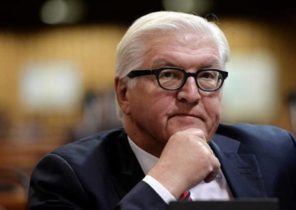
Planned purchase Vauxhall Peugeot became the reason of fears that the automotive industry and the UK as a whole will experience a powerful kick as a result of the implementation of the plans Theresa may (Theresa May) for the country’s exit from the European Union. However, in reality the situation will develop differently.
The EU membership clearly benefits the manufacturing industry. According to some estimates, the level of protection from the tariff and non-tariff barriers is about 20%. If to get rid of him, prices of industrial products in the domestic market of the United Kingdom will fall by about the same 20%. This has a positive impact on consumers and increase the level of competition in the market. And, in turn, will lead to productivity growth in all sectors of the economy. Add to this the similar effects of the abolition of the common agricultural policy and related rates, the results obtained by the standard model of international trade, will be long-term benefits for consumers, the growth of GDP to 4%, and a reduction in consumer prices by 8% and increased revenues by 7%.
But what consequences this will have for the automotive industry and industry in General? In the past the British motor industry and the manufacturing industry has experienced periods of rapid growth, when they managed to abandon outdated technologies and climb the value chain value added to high value manufacturing.
Such knowledge-intensive activities like Finance, education and health — is a comparative advantage of the UK. Today, according to National statistical management of great Britain, a significant part of those 8% of jobs that fall into the sphere of industrial production, have become high-tech and competitive on world markets. We often forget about the fact that half of our exports of industrial goods and 60% of our cars sold outside of the EU markets.
One of the factors is the exchange rate: since the referendum on the question of UK membership in the European Union, the pound sterling to dollar and Euro decreased by approximately 15%. But another factor will be the ability of the British automotive industry to access global supply chains, not looking at the cost of the rates.
If you put all these factors together, it becomes clear that the industrial manufacturing and the automotive industry will bring much more profit than before, in the short and medium term. In my estimation, and estimates of Edgar Miller (Edgar Miller) from School of business John Cass (Cass Business School), profits of industrial enterprises on the average could rise by 16%, and automotive companies — about 14%, mainly owing to the depreciation of the pound sterling.
For the industry it is a powerful impetus for increasing profitability, because in the long run this will allow them to increase productivity. This also explains why the manufacturing industry of the United Kingdom, which is still reeling from the uncertainty that arose in connection with PACSICOM, is now working at full capacity — has recently been a growth index of purchasing power in this sector.
The prospects for concluding a trade agreement with the EU does not play almost any role. For example, in our calculations we have taken into account the possibility of introducing the current tariffs in the manufacturing sector, which average a modest 3.5%. And, if free trade between the United Kingdom and the European Union will continue despite the fact that all mutual tariffs will be canceled, the profit will increase even more.
What would happen if we were to introduce tariffs in response to the actions of the European Union? Direct losses of industrial production of the United Kingdom will be relatively small, because the British government will reimburse the import duties on re-exported goods all — around 70% for the manufacturing industry. But even this will be phased out because manufacturers can switch to resources and goods produced in the United Kingdom or in other countries, when they signed a trade agreement.
We should ignore calls for the imposition of retaliatory measures, which ultimately can hurt us. No matter what tariffs we imposed these tariffs, in accordance with the rules of the world trade organization, must act with respect to all other of our partners before the signing of new trade agreements. In addition, the EU may experience brief disruptions in manufacturing supply chains. It is best to just walk away and demonstrating his kindness, not to introduce any duties against the countries of the European Union and all the rest.
This will allow us very soon to reap the benefits of free trade, lower prices and productivity growth. We can continue negotiations about the conclusion of trade agreements with other countries, which will cover such issues as investment and property rights, public procurement and better access to market services in these areas are still the highest barriers in the world.
However, whichever route to free trade choose the Prime Minister may, automotive industry and industry of the United Kingdom as a whole can count on a successful transition to a more productive future.
Patrick Minford — Chairman of “Economists for free trade” (Free Trade for Economists) and Professor of applied Economics at the University of Cardiff.






